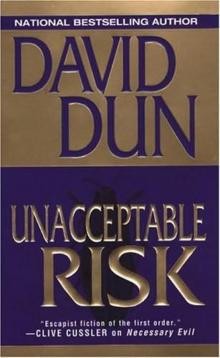Overfall Read online
Page 13
It was a wonder, he thought, that he had found a job that so nurtured his creativity.
Once in the taxi, Gaudet called Trotsky for the final time. “Do we know where they are going?”
“Seaplane to Vancouver. We’re guessing private jet out of there to the States.”
“Guessing does me no good.”
“Anna lives in Manhattan. Just to the west of Central Park. I have the address.”
“Have you got people there?”
“Soon. Chellis’s group has just found us an apartment across the street. We’ll have to lease it for a full year.”
“Do it. Surveillance?”
“When we get in the apartment. The normal audio equipment should work fine.”
“Does Anna Wade have other houses?”
“At least one in Hollywood Hills and a ranch in Wyoming.”
“Americans ... Get all three places covered but focus on Manhattan if that’s her primary home.”
“It will take a lot more people.”
“Then get a lot more people. We’re getting paid for it.”
Twelve
October in Borneo ushers in the rainy season following what is almost always a dry September. But this October, now nearly ended, one would never have guessed it was the start of the monsoons, for it had not yet rained. The creeks were a trickle, water was being rationed, the ground was gray and cracking, people were grumbling, plants were dying, and animals were crowding slimy waterholes.
Samir wished for something more effective than Valium. Before his face tropical fish swam in a large tank. They floated and moved in rhythmic muscular ripples, ordered symphonies in motion. He watched the fish only because he had heard that they were found in waiting rooms where their effect was touted as calming.
Perhaps they were helping. He could not be sure. His mind was like a curtained room, round and full with secret fears, massing just out of his sight. He found that if he didn’t keep his eyes on the fish, they cast furtively about. At times his body shook as if he were cold, and then out of sheer weariness it would stop. Usually at those moments he slept.
He played a strange mental game, forcing himself to remember what he used to be like, trying to pretend to be the man he once was and to make decisions he once would have made. Frequently he asked Fawd what he might have done before, just days ago, and Fawd tried to conjure the right memory of his boss in full command. Fawd had given him a shot of Thorazine and he was waiting, hoping for some results.
Samir remained determined to break into the laboratory, but it was hard to maintain inertia in the face of his anxiety. Just this morning, while shaving and making a giant O with his mouth, Samir had caught himself wondering if he was still Samir Aziz. DuShane Chellis had done something to him, to his mind. Samir knew that Chellis had gone to a great effort to gas him in the lockout chamber. He also knew Chellis was lying about the entire incident, but he had no idea concerning Chellis’s reasons, except that it probably related to the Mossad visit and the new technology Colonel Schenkel had hinted at when he was holding a gun in his face.
He needed to know the truth.
Fawd had spoken on his behalf with Chellis, but the man had only smiled an insolent smile and offered his sympathy for Samir’s “anxiety attacks.” Before leaving for Paris, he had offered to have Samir seen by a distinguished neurologist in France. It would be a cold day in hell before Samir put his life in the hands of DuShane Chellis. He also recommended a masseuse, but Samir would have none of it.
The man was a strange kind of Frenchman. Chellis’s grandparents on his father’s side had emigrated to the United States, but had kept their French ways and their French language. Chellis himself was born an American, educated in American schools, and attended the first two years of a university in the United States, but finished in France. His education in France ultimately turned into citizenship. As far as Samir was concerned, the man thought like an American, lived and spoke like a Frenchman.
Thanks to his hookup with Chellis, Samir had become a force in the arms industry—a man with a lot to lose. His company was a major presence at the Paris Air Show, the Abu Dabai International Defense Exhibition, the Singapore Marine Arms Show, and other lesser shows. In the spacious halls of IDEX 2002, Samir could offer just about anything military, from boots to bombs, ready-to-eat meals, fighter jets, and helicopter gunships. He had a very popular air defense antitank system, and was even trading in medium-range missiles capable of delivering nuclear warheads. It was up to the buyer to supply the nuke.
It was Samir’s relationship with Chellis and their mutual projects that had propelled his net worth to more than five hundred million Eurodollars and the Frenchman’s to more than three billion. Their secret joint venture continued to use medical technology, computer software, and hardware in military applications, but the Grace Technologies name was on nothing. The parts made a circuitous journey to a South American medical supply manufacturer, and from there through many distributors (all paid a small portion for keeping their mouths shut) back to Samir, and then on to China and other interested nations and organizations.
Chellis’s association with Devan Gaudet was a new and troubling development for Samir.
Recently, a fellow arms dealer had exchanged a $100-million shipment of surplus Soviet weapons for trunks full of U.S. stocks and bearer bonds. When the bearer bonds disappeared without a trace and the tons of merchandise with them, rumor had it that Gaudet had killed the dealer and several of his men while making it appear the work of Samir Aziz. Most people considered Gaudet a myth; Samir knew better.
It now made sense in retrospect that Chellis might have forged a business relationship with the elusive assassin. Not long ago a French minister who had called for investigations into Grace Technologies died suddenly in an apparent drowning accident. What good fortune for Chellis, Samir had thought at the time.
Samir knew more than most about Gaudet, but it still added up to precious little. He had started out as a thief and a loan shark enforcer, become a hired killer, amassed a fortune, gotten into business, and worked for only a select few. His clients included men with oil money who funded terror. Samir had never seen Gaudet—at least that he knew of—but it was said that the killer favored a beard. Perhaps he would discover something of Gaudet in the lab, but he doubted it. More likely he would discover something about himself—probably something he didn’t want to know.
Fortunately Kuching was an easy place to move men and materials. Samir stopped watching the fish and told Fawd that the drug cocktail was good enough—it was time to perform the break-in.
As he waited for his men to take care of the security guards, he hoped he wouldn’t fall apart. He tried to calm himself by acknowledging the degree to which he’d planned and prepared for this operation. Long before this trip to Kuching, Samir had had his best men study the Grace lab. He had always known there might come a time when he’d have to look in on his partner’s business without Chellis knowing. In general, no laboratory staff members worked between midnight and 6:00 A.M. Only the janitors visited the building, and when they were in, the alarms were off.
Trained security men walked the buildings and grounds, but there was fatal regularity to their attempts at random patrols and they undertook their duties in the somnambulistic fashion of the underpaid. By five minutes after midnight Samir’s men had all four guards trussed and blindfolded and sleeping soundly from a narcotic. They would wake in twelve hours on their front porches, smelling of whiskey and with no memory of anything that had happened to them. Clinical experience had proven that the drug erased the memory, and further that recipients would unconsciously manufacture self-protective and context-appropriate explanations for unexpected happenings. These men would convince themselves, upon awakening on their front porch to the smell of alcohol, that they had finished their jobs and had a drink. Despite his panicked state Samir savored the irony that he had originally gotten this drug from Chellis.
Once his men had cart
ed off the security staff, they merely waited for the janitors to finish the northernmost wing. At 3:00 A.M., Samir and his men moved down the hall methodically. It was just as Samir remembered. Walls bare and off-white, the floor shined, everything clean, nothing fancy, the faint odor of caged primates.
They went straight to the neurology wing in the primate building and there they found no files. Apparently security discipline was being enforced. Samir had to take another tranquilizer and gather himself. He sent his men to do the work while he sat in an office and shook.
His men backtracked to the offices of the scientists nearest neurology. There they went through locked file drawers, Samir hoping that human nature would yield some stray documents. He had told his men that he wanted files on people, not apes, and that any such files should be immediately photographed. He sent another group to administration, and fell asleep because of the heavy doses of medication.
Fawd reported that the large walk-in safe at administration was hard to miss, but it was locked, had a timing device, and his safecracker could not gain entry. To use powerful enough explosives to open the door of the safe would wake the city and destroy the building. Samir was not about to get thrown in a Malaysian jail—especially with his new anxiety problem.
Disappointed, they retreated to the locked file drawers in the offices of the various research scientists and again awakened Samir. Hundreds of available files yielded only two interesting documents. One pertained to Jason Wade, the other to Jeremiah Fuller. Fuller had evidently been treated for dementia, likely the result of late-onset Alzheimer’s. Wade had apparently been treated for a rare brain disease whose course was not well known. Apparently both men had been desperate enough to subject themselves to experimental treatment.
The portions of the files containing treatment details were missing, but the last paragraph of the last page of a technical write-up in the Jason Wade file read:
Production of retro viral vector by multiplying circular vector plasmid using e-coli restriction digestion. Production of coding sequence for receptor amplified from cDNA source by PCR. Coding sequence for blocker by PCR. Promoter amplification from genome DNA by PCR. We introduced 5ml vector times 19 through venous transfusion: one aloquat per each promoter. Estimated 98% success to infected cells, estimate infection rate 92%. Transdermal application of suppressor/activator cell agent feasible. Test to see if JH receptor is in frame.
Samir ordered one of his men to photograph the technical language. He would send it to a lab that might tell him something. He also ordered his lieutenant to find out everything possible about Jason Wade and Jeremiah Fuller, including information on family and friends. They went back to the primate lab, observed the packs on the backs of the two macaques, and continued looking. In a storage room they found packs and plastic bottles labeled JH with dates. One was denominated Potency Exp. 05/05. Another bore the label Transdermal JHRA.
“What does it mean?” Fawd asked the science expert on the team.
“Whatever it is, they apply it through the skin. I assume from the lab note that SA means suppressor agent.”
“Take all there is. Take the two liters,” Fawd said. “They will know someone broke in, but why should we care?”
Anna’s Manhattan apartment was on the twenty-eighth floor of her West Side building. She had been trying to read a book that had been recommended during cocktail talk at a party. The friend who made the suggestion was a psychiatrist, a man who had been happily married for thirty years. Although she couldn’t help bristling at what she thought might be an implication, however subtle, that she couldn’t stick with one man, she was now reading with more interest than she cared to admit. Normally she read a book in a few days, but with this one she read slowly, picking her way through the ideas and the feelings. It was titled Where Did She Go? Where Did He Go? and purported to study a phenomenon called emotional unavailability. Having resumed her reading of the book upon her arrival from Canada, she had come to realize that she was reading about Sam. She had started to wonder if she might also be reading about herself.
Like a lot of highly motivated and self-directed people, Anna had the mother of all double standards for those with a title like therapist, counselor, psychiatrist, or psychologist. Shrinks of all flavors were fine ... for the other guy: There was not a shred of shame in consulting them. Anna had found no difficulty in consulting head doctors for the sake of her brother, but since beginning this book she had gone to someone strictly for herself twice in a week.
The phone rang—her publicist. Apparently when the press had called her to ask whether Anna had spent the night with a rugged, American sailor aboard his yacht in British Columbia, the publicist had responded with “no comment.” Ordinarily that would be okay, but in this instance it would be taken as an admission. Anna knew Sam would be angry if his name or even his general description ever came up.
“Just call them back, say that you checked with me, and explain that there was no night on a yacht at all. I was with my brother. I did some survival training with an expert. We stopped at the resort for a few minutes, this expert and I, and I signed autographs for some bird-watchers. End of story. Nothing has changed between Lane and me.”
She went to the kitchen. When things were tense she liked to eat, and when she was determined not to eat, she would go to the kitchen and graze with her eyes. Bananas, apples, oranges, tangerines, mangoes, a pineapple, pears, whole-wheat crackers, crusty dark whole-wheat bread. There was the aged balsamic that by itself was good, but when used with olive oil induced massive consumption of bread. New York-style kosher dill pickles. Lazio’s gourmet tuna. And then the refrigerator things: special Cajun relish for the tuna; nonfat yogurt that had protein but was full of sugar; the unsweetened yogurt that was a little too tart but okay if mixed with fruit; barbecued tofu sticks from the local deli; lox. And best of all, the jar of natural peanut butter with the oil floating on top.
Anna’s most successful and painless diets had been those that she made up herself, and the least successful were those she read about in books. She favored seafood and vegetables and whole wheat and soy products. If it could scream when it died, she preferred not to eat it, and she knew she should never eat in the evening. Of course this was difficult to explain to a man who wanted to buy you dinner at Babbo.
As if summoned by the thought, Lane called. “Hi. How goes it?”
“Oh, fine. I’m hungry and so I’m going to work out. And I miss you.”
“I’m missing you too. All the time lately.”
From there the conversation spiraled down through a long string of exchanged and rehashed excuses for not seeing each other and Anna’s attempt to explain Sam, pretty much without success.
“Look,” Anna finally said, “I’d like to tell you more about this investigator guy, but really I shouldn’t. The way he works, if I talk I’m breaking my word. Oh, hell. I can tell you. It’s a guy who sometimes calls himself Sam. I know when a person is well connected and Sam is that.”
“Well hung or well connected?”
“Don’t be crude and especially don’t be jealous. I don’t know his full name because he doesn’t give it out to clients, but he seems very solid. I’m having him checked out.”
“Sounds serious.”
“It is.”
“Listen, you take care of Jason. When you’re done you call me. We’ll meet. Maybe we can start over.”
But she could hear a difference in his voice. There was resignation and sadness, and she knew he didn’t really believe what he was saying. What they really needed was a dinner or two to break up properly. It would require a weird dance of words, each party trying desperately not to feel rejected and trying not to make the other feel rejected. A perfect parity parting. That was what Lane was thinking and she knew it. Probably because that was what she was thinking.
Still, she wouldn’t close the door. Maybe they could work something out. Then a new thought zinged through her mind. Maybe he had been seeing someone else.
These things could be very subtle at first. He had three women in his current movie. Two were single, and it really didn’t matter that the third was married. People got ideas, married or single, and LA people were among the worst.
Lane would not cheat, but he might think, and if he was thinking ...
She tried to shake her bad thoughts. She had absolutely no reason to doubt Lane. More reason to doubt herself. It was so easy to start thinking. It was like food. An iron will was required. Maybe she was thinking about Sam. She hadn’t liked the sound of her own voice when she told Lane not to be jealous of Sam.
On the desk was a script. She loved it. If she took it, there was no doubt it would take her further from Lane. Somebody once told her that everybody who makes it to the top is hard in the core. They make sacrifices in their personal life—killer instinct, some called it God, she hoped it wasn’t true.
She called her agent “Let’s make the deal on August Moon.”
“You’re sure.”
“Yes, I am.”
“Okay, honey. You got it.”
Gathering her things, she called to Genevieve, her young assistant, and said she was leaving. Anna normally employed people in their twenties as assistants, people interested in the arts, acting, design, and the like. These tended to be somewhat informal arrangements and she often had four or five in her employ at once, although she usually tried to find things for them to do that would keep them out from under her nose. Sometimes that was difficult. Genevieve would probably never be an actress, but she was the best assistant Anna had ever found.
Anna was having dinner with her ex at his place. She wondered if she should have mentioned it to Lane.
On her way out the door she called Lane again.
“This will only take a minute.”

 Overfall sw-1
Overfall sw-1 Unacceptable Risk
Unacceptable Risk At The Edge
At The Edge Unacceptable Risk sw-2
Unacceptable Risk sw-2 Overfall
Overfall The Black Silent
The Black Silent